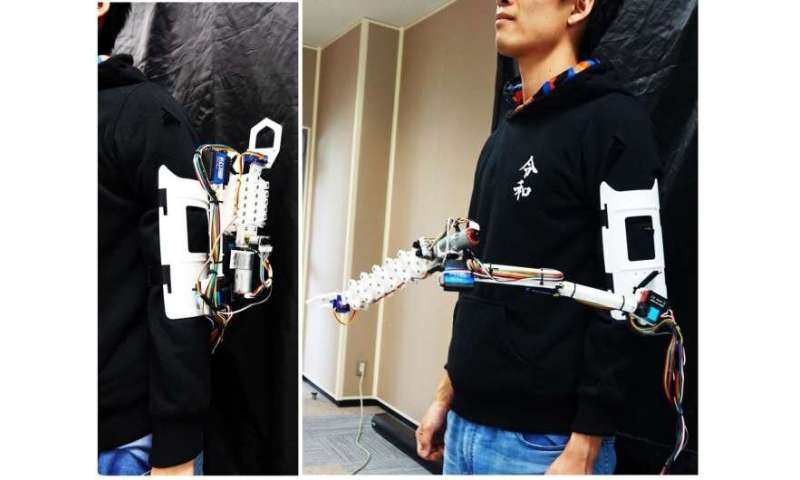Best of Last Week – Possible detection of dark energy, an augmented limb, a hydrogel for cartilage repair

It was a good week for astrophysics as a team of researchers at the University of Cambridge suggested that some unexplained results from the XENON1T experiment may have been an instance of detection of dark energy. Also, a team led by a group at the University of Leeds identified large reservoirs of precursor molecules necessary for life in protoplanetary disks circling newly formed stars. And an international team announced that they are predicting that the supernova Requiem, which was observed exploding back in 2016, will make another appearance in 2037.
In technology news, a combined team from the University of Tokyo and the Japan Advanced Institute of Science and Technology demonstrated a compact robotic limb that could support humans as they complete a variety of everyday tasks—called AugLimb, the device can augment natural abilities rather than replacing those that have been lost. Also, a team at the Technical University of Munich developed a machine-learning technique that could be used to learn local equilibria in symmetric auction games. And a group at the University of California, Santa Barbara found a way to count the number of people in a crowd using only Wi-Fi signals. Also, a team at the University of Waterloo found a way to use a multi-task learning network to identify the numbers on jerseys of sports team players.
In other news, a team at Curtin University conducted groundbreaking research that identified the likely cause of Alzheimer's disease—leakage of blood into the brain of fat-carrying particles transporting toxic proteins. Also, a team with members from Friedrich-Alexander University Erlangen-Nürnberg, the University of Bristol and the University of Bath found evidence showing that all modern snakes evolved from a few survivors of the dinosaur-killing asteroid.
And finally, if you suffer from cartilage erosion or damage, you may want to check out the work done by a team of researchers in China. They have developed a new injectable hydrogel for cartilage repair that can be used without the need for surgery.
© 2021 Science X Network